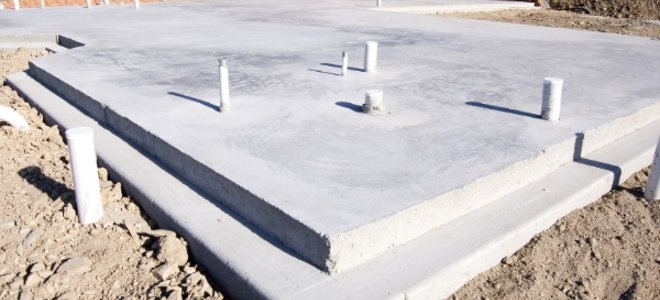A concrete slab foundation or may not be the most attractive option for many home buyers. Slab foundations, however, are quite common and provide excellent structural stability. They are easy to set up, provide a flat surface, and offer excellent protection from natural disasters like hurricanes and earthquakes. There are some disadvantages to a concrete slab foundation though. This article will address the most common problems associated with installing a slab foundation as well as possible solutions.
Concrete slab foundations are made of cementitious materials like concrete slabs. A concrete slab is generally laid on an asphalt layer for good drainage or to serve as a cushion for the foundation. Concrete slab foundations are common in homes. This creates a problem if a disaster occurs and a part of the house falls.
Concrete slabs are less structurally sound than poured foundations, so slab foundations are more likely to settle. Over time, the foundation will settle, leading to cracks and other problems that could lead to foundation failure. Many older houses are made of materials that can quickly degrade. The result can be foundation deterioration that can put your family at risk for serious structural integrity issues.
A slab foundation can have its problems traced in part to the types of soil conditions surrounding the area. Your foundation will settle to the bottom if the soil around your home is clayey. Clay expands when it is wet. This can make it difficult for the soil and foundation to bond together. Too much expansion or contraction can cause foundation cracking and cave-in, which can lead to foundation movement and additional repairs.
Concrete slab mixes that have not been properly cut can also be used to create foundations. For example, homebuilders may cut the mix to cut it to less than two feet long. The cracks that result from this slab breaking or shifting will be wider than the original cut, and in some cases they may exceed three feet. This means that when the ground settles, your home will be susceptible to movement and that foundation damage can occur.
Though slab foundations provide an excellent method of construction and housing construction, they have their disadvantages. A slab’s main disadvantage is their inflexibility. Living space is more flexible than other types of foundations because of this. This causes slabs to crack and cave in. Cracks may appear in ceilings and walls, doors, windows and doors leading to your living space as well as other areas of the home.
Another disadvantage to slab foundations is their inflexibility. The foundation will settle faster and move less if it is built on more flexible soil. In addition, if there’s any movement in your foundation, it can cause problems for the structural integrity of your home.
slab foundations are most commonly found in warm climates where the soil is more moist. They are also more common underpinning melbourne in colder climates where the soil has more frozen. This means that in warm climates, they’re less likely to be needed. Slab foundations are required in cold climates. This is because the soil may settle quicker in these areas, making it difficult to build a foundation.
Slab foundations can be used in areas that have an open area directly below the house. This is common for basements that connect to the house via ductwork. As the water fills the ductwork, the foundation will settle over time. If the foundation moves, the water can cause damage to the ductwork as much as the house. This can cause structural damage, and sometimes even the closure of the building.
Another reason these foundations are popular in basements is that they are cheaper than other foundations, such as crawl spaces and basement walls. These foundations are cheaper than other foundations because they offer the same structural integrity. In addition, if the homeowner decides to have structural repairs done to their basement, then they won’t need to pay for additional foundation work like a slab because they aren’t needed.
slab foundations are usually installed by a qualified construction company, but it may be a good idea to have a professional waterproofing company come out and look at it before the job is started. A qualified contractor will be able to give homeowners an estimate on how much the foundation will cost them to waterproof. In addition, a waterproofing company may also recommend other options that aren’t as common, including the use of a concrete slab or a basement waterproofing membrane. These options are ideal for the basement, in addition to waterproofing your main floor.

